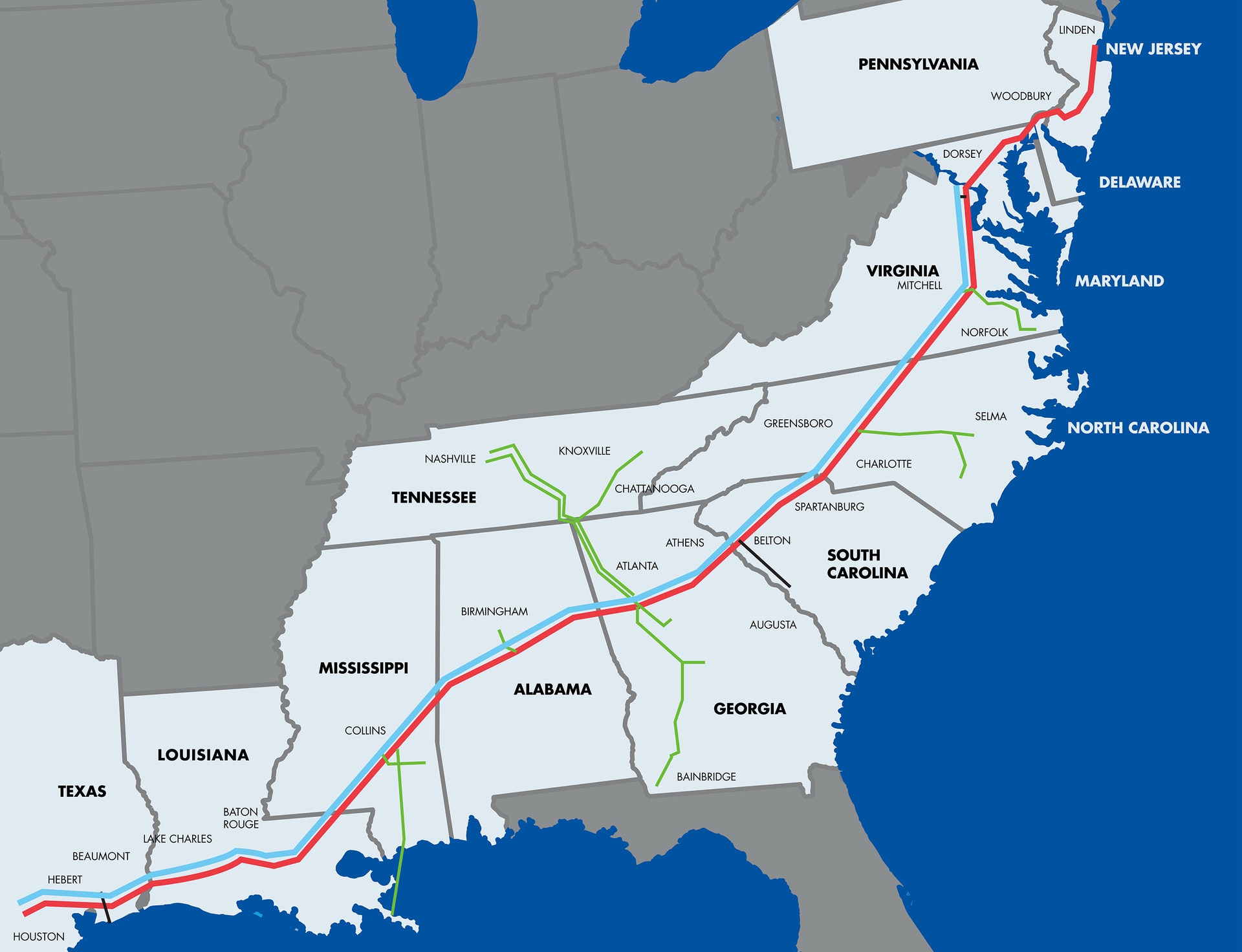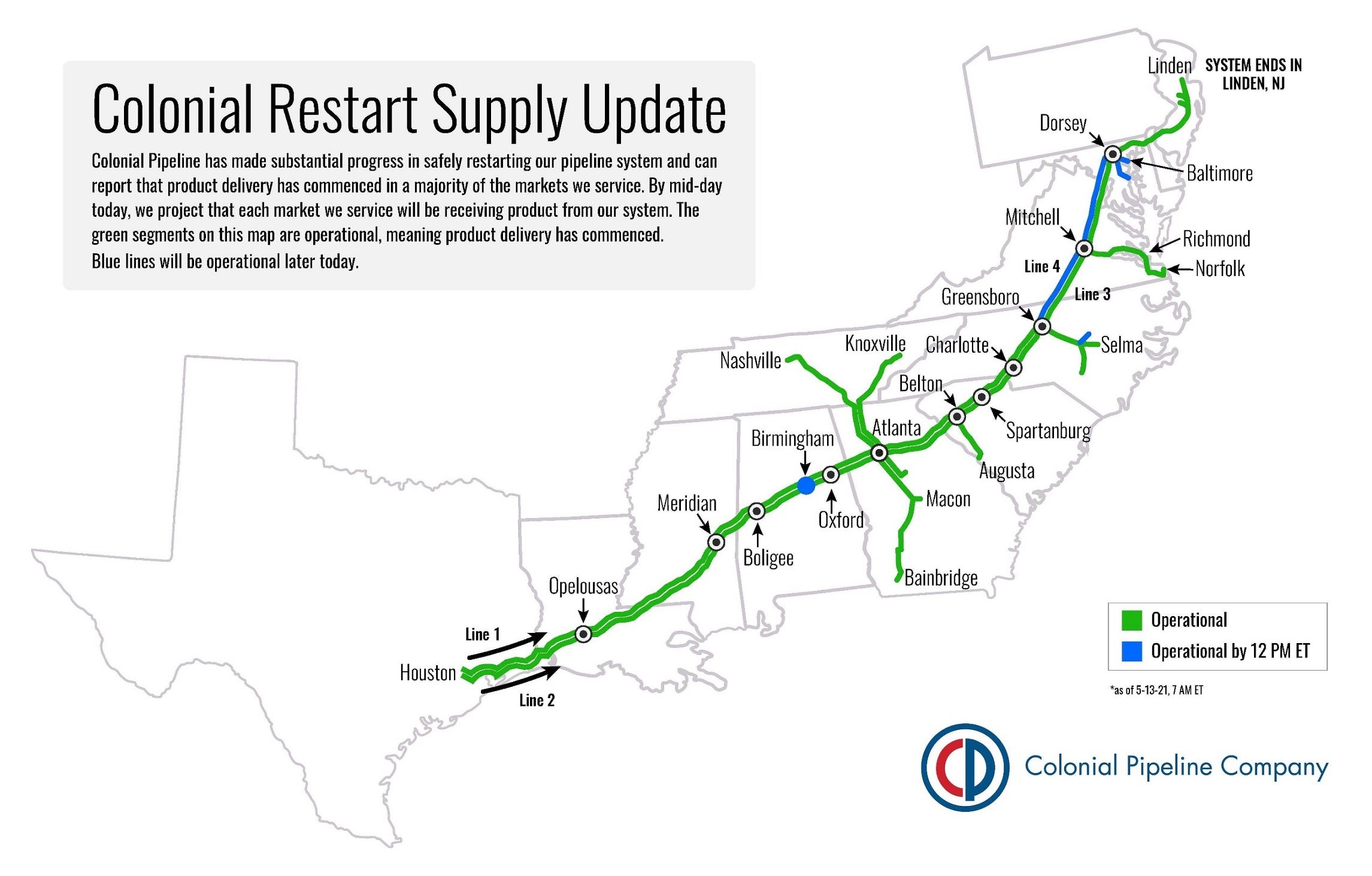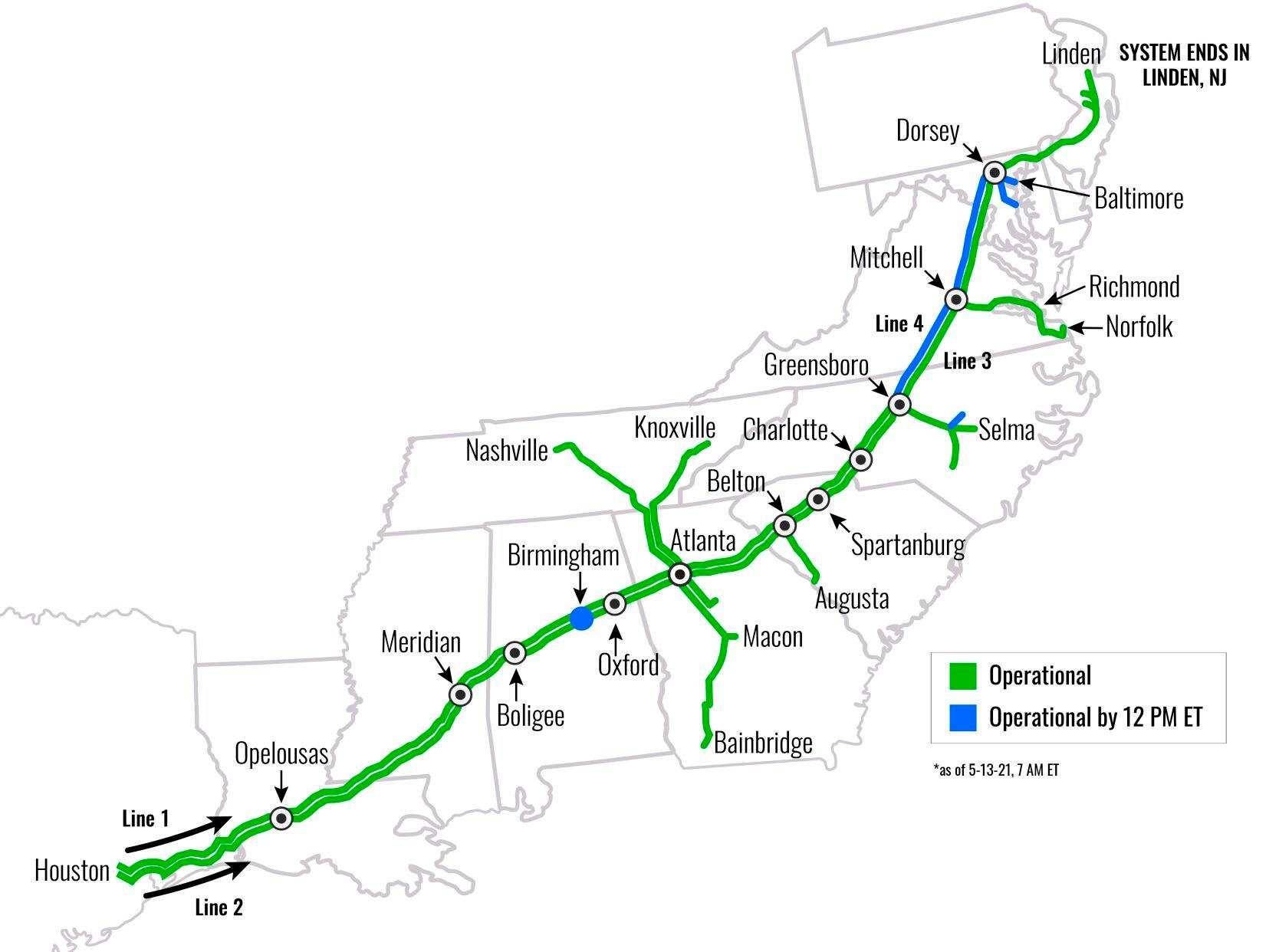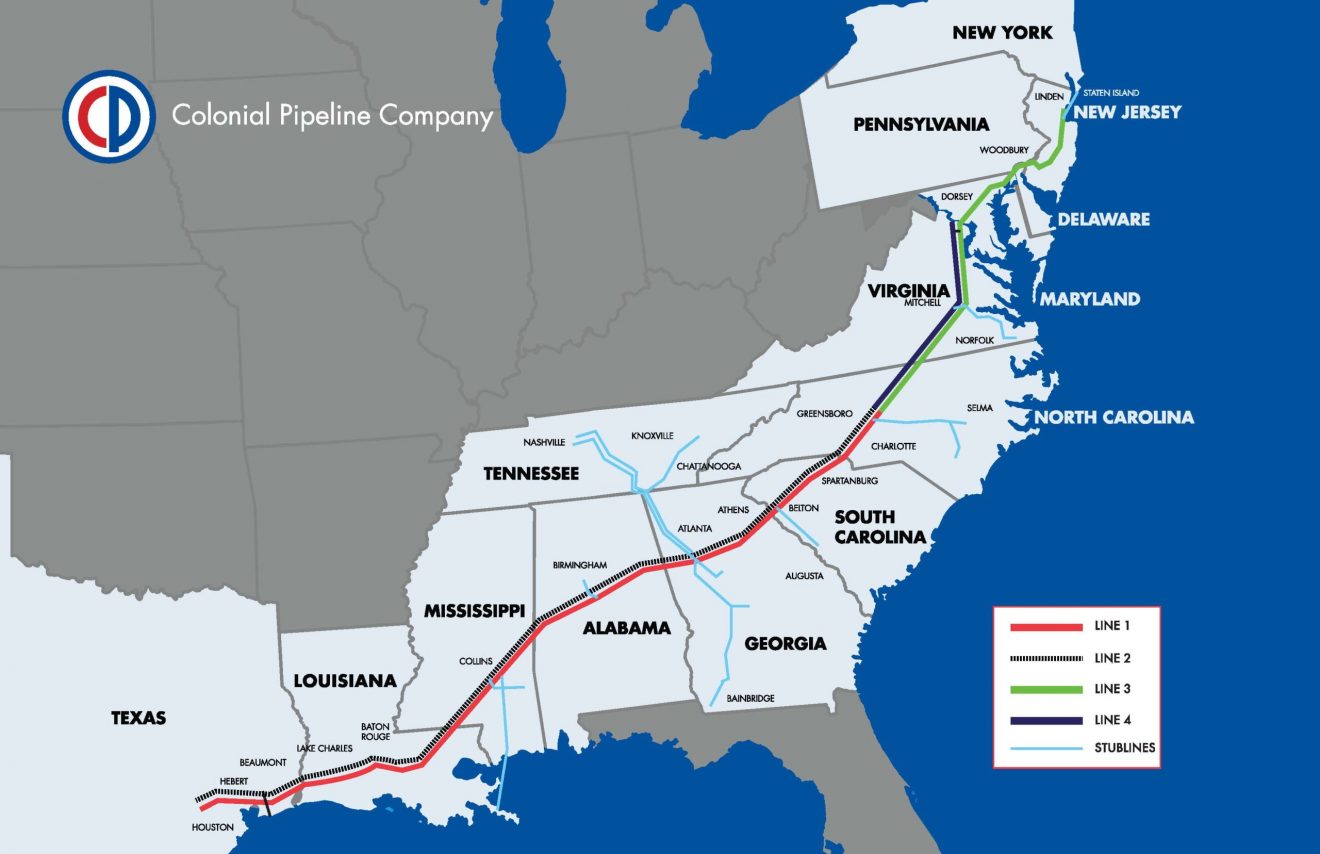The Colonial Pipeline System: A Vital Lifeline for Fuel Distribution in the United States
Related Articles: The Colonial Pipeline System: A Vital Lifeline for Fuel Distribution in the United States
Introduction
With enthusiasm, let’s navigate through the intriguing topic related to The Colonial Pipeline System: A Vital Lifeline for Fuel Distribution in the United States. Let’s weave interesting information and offer fresh perspectives to the readers.
Table of Content
The Colonial Pipeline System: A Vital Lifeline for Fuel Distribution in the United States

The Colonial Pipeline is a critical piece of infrastructure in the United States, responsible for transporting refined petroleum products from the Gulf Coast to the Northeast and Mid-Atlantic regions. This network of pipelines, spanning over 5,500 miles, plays a vital role in the nation’s energy security and economic well-being.
Mapping the Network:
The Colonial Pipeline system originates in Houston, Texas, and extends eastward across the southeastern United States. It traverses through the states of Texas, Louisiana, Mississippi, Alabama, Georgia, South Carolina, North Carolina, Virginia, Maryland, Delaware, New Jersey, and New York. The pipeline network is composed of several segments, each with a specific purpose and route.
- Line 1: The primary line, stretching from Houston to Linden, New Jersey, transports gasoline, diesel fuel, and jet fuel.
- Line 2: Running from Linden, New Jersey, to the New York Harbor area, this line primarily delivers gasoline and diesel fuel to the metropolitan New York City area.
- Line 3: This segment, connecting Greensboro, North Carolina, to the New York Harbor area, primarily transports diesel fuel.
- Line 4: This line transports gasoline from Greensboro, North Carolina, to the New York Harbor area.
- Line 5: The newest addition to the system, Line 5 extends from Greensboro, North Carolina, to the New York Harbor area, primarily transporting gasoline.
Importance and Benefits:
The Colonial Pipeline System is a cornerstone of the nation’s energy infrastructure, providing numerous benefits:
- Reliable Fuel Supply: The pipeline system ensures a consistent and reliable supply of refined petroleum products to major metropolitan areas and industrial centers along its route.
- Reduced Transportation Costs: Pipelines offer a cost-effective and efficient mode of transportation compared to rail or truck, reducing the overall cost of fuel delivery.
- Environmental Impact: Pipelines minimize the environmental impact associated with road transportation, reducing traffic congestion, greenhouse gas emissions, and road wear and tear.
- Economic Growth: The pipeline system supports economic activity and job creation in various industries, including refining, transportation, and distribution.
The 2021 Cybersecurity Attack:
In May 2021, the Colonial Pipeline System experienced a significant ransomware attack, highlighting the vulnerability of critical infrastructure to cyber threats. The attack resulted in a temporary shutdown of the pipeline, leading to fuel shortages and price increases in the affected regions. This incident underscored the need for robust cybersecurity measures to protect critical infrastructure and prevent future disruptions.
FAQs about the Colonial Pipeline System:
1. What is the capacity of the Colonial Pipeline System?
The Colonial Pipeline system has a capacity of approximately 2.5 million barrels of refined petroleum products per day.
2. What types of fuels are transported through the pipeline?
The Colonial Pipeline system primarily transports gasoline, diesel fuel, and jet fuel.
3. How is the pipeline system maintained?
The Colonial Pipeline system is subject to rigorous maintenance and inspection procedures to ensure safe and reliable operations. These procedures include regular inspections, repairs, and upgrades.
4. What are the environmental impacts of the pipeline system?
The pipeline system has minimal environmental impact compared to other modes of transportation, such as road transport. However, potential environmental concerns include potential leaks and spills.
5. What measures are in place to prevent future cyberattacks?
Following the 2021 ransomware attack, the Colonial Pipeline company implemented enhanced cybersecurity measures, including improved network security, threat detection systems, and employee training.
Tips for Understanding the Colonial Pipeline System:
- Use Interactive Maps: Online maps can provide a visual representation of the pipeline system, its routes, and key locations.
- Research Pipeline Reports: The Colonial Pipeline company and regulatory agencies publish reports and data on the pipeline system’s operations and performance.
- Stay Informed about Industry News: Keep up-to-date on industry news and developments related to pipelines and energy infrastructure.
- Engage in Public Discussions: Participate in public discussions and debates about the role of pipelines in energy infrastructure and their potential impacts.
Conclusion:
The Colonial Pipeline System is a vital component of the United States’ energy infrastructure, playing a critical role in the reliable delivery of fuel to major markets. While the 2021 cyberattack highlighted the vulnerabilities of critical infrastructure, the system continues to be a cornerstone of the nation’s energy security. Understanding the importance, operation, and challenges of the Colonial Pipeline System is crucial for informed decision-making regarding energy policy and infrastructure development.






![]()

Closure
Thus, we hope this article has provided valuable insights into The Colonial Pipeline System: A Vital Lifeline for Fuel Distribution in the United States. We thank you for taking the time to read this article. See you in our next article!